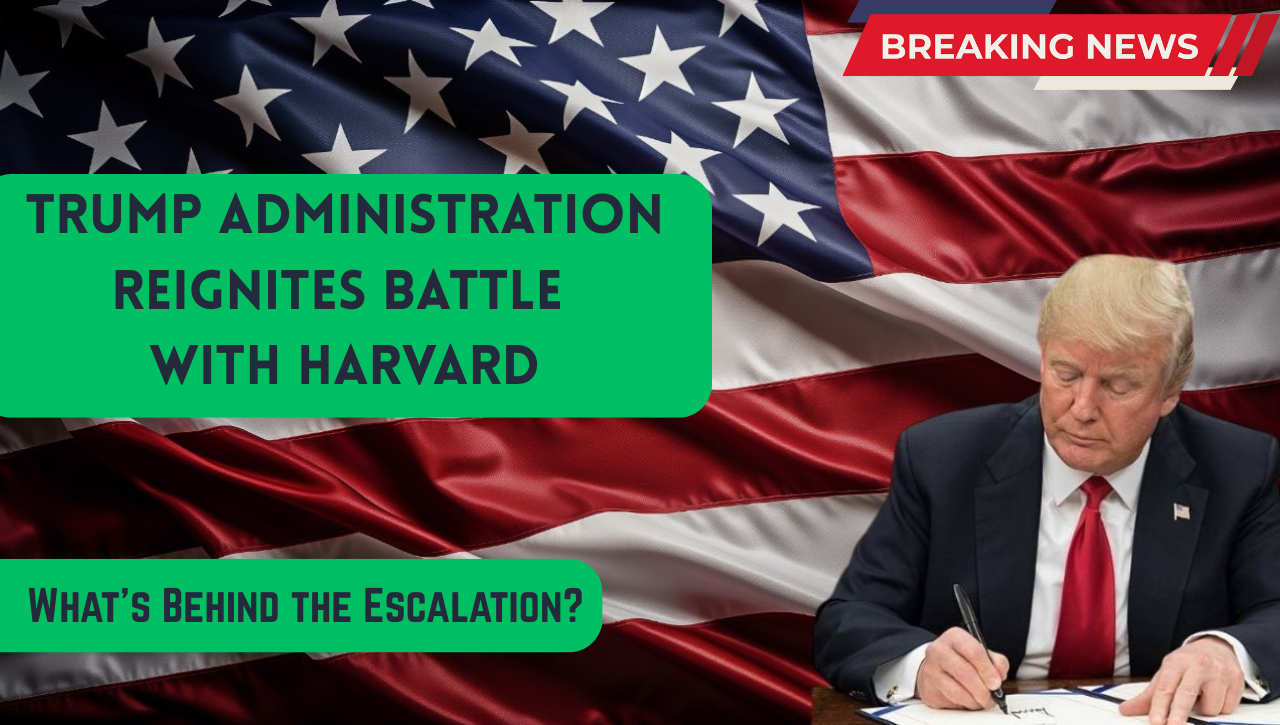The issue that has its roots in elite admissions, affirmative action, and more general discussions about race, meritocracy, and equity in higher education has erupted once more from the school and the Trump administration. Although the two influential institutions have previously clashed, the 2025 rematch points to more deep cultural and political groups that still influence America’s legal and educational systems.
A Long-Running Feud
The Trump administration’s first confrontation with Harvard started during his first term, when the Department of Justice (DOJ) opened an investigation into the university’s admissions practices. The administration backed a lawsuit alleging that Harvard discriminated against Asian American applicants by unfairly applying race-conscious admissions.
While Harvard successfully defended its policies and prevailed in court, the case reached the Supreme Court, which became a focal point of the national debate over affirmative action. The decision, handed down in 2023, severely limited the application of race in college admissions.
And now, in 2025, with Trump back in the middle of conservative politics, the battle is heating up again—this time with fresh political energy and legal weapons.
What Caused the Recent Hype?
The latest wave is an aftermath of the renewed federal investigation into whether or not Harvard has been discriminating against the Civil Rights Act through reportedly continuing to favor diversity through means that would be interpreted as subtle racial quotas. The Trump-favored DOJ is said to be examining internal admissions records and emails between administrators indicating Harvard might still be “finding workarounds” following the Supreme Court decision.
This new-found interest is but one aspect of a larger push by conservatives to confront institutions thought to be liberal bastions, particularly elite colleges. President Trump and his cohorts contend that the universities are indoctrinating the students, quashing free speech, and playing games with admissions to advance ideological agendas.
Harvard’s Response
Harvard, for its part, has reaffirmed its commitment to diversity within the bounds of the law. Administrators have asserted that their present admissions procedures are in accordance with the most recent Supreme Court decision and that the university believes in a holistic approach to reviewing applicants—one that looks at a broad spectrum of criteria in addition to test scores and grades.
In a public release, Harvard held firm:
“We remain committed to fostering a diverse academic community while fully respecting the legal boundaries set by the courts. Any suggestion otherwise is misleading and politically motivated.”
Harvard has also seen growing support from peer institutions and civil rights organizations, many of which view this renewed investigation as part of a broader campaign to undermine diversity and equity initiatives across education, business, and government.
Political Motives at Play
The new fight is not just about education policy—it’s about political messaging. Trump, looking to make another run at the White House, is using this issue to energize his base, many of whom are anti-elite institutions and what they perceive as “woke” ideology.
To Trump and his supporters, hitting Harvard is evidence of fighting back against liberal elites, reclaiming conservative ideals, and imposing a vision of “colorblind” meritocratic advancement.
What’s Next?
The investigation could lead to lawsuits, public hearings, or even proposed federal legislation targeting how universities admit students. While it is unclear whether the current administration has enough legal authority to force drastic changes at Harvard, the political calculus of the moment is already shaping public perception.
In the meantime, colleges and universities nationwide are watching this development with bated breath. Most are updating their admissions policies in real-time, uncertain how far the federal government will go to redefine diversity and inclusion in higher education.
Final Thoughts
The most recent confrontation between the Trump camp and Harvard highlights a more profound national debate—What does fairness in education really mean? Whether this new conflict results in actual policy reform or is simply an ongoing flashpoint in the culture wars, what is certain is that the fight over admission and why someone is admitted will remain a battleground far beyond 2025.
FAQs
Q.Is this issue only about college admissions?
A.No, the conflict reflects broader political battles over race, equity, elite institutions, and free speech. It’s also a strategic move to rally conservative voters ahead of the next election cycle.
Q.What is Harvard’s response to the renewed investigation?
A.Harvard maintains that its admissions process complies with the law and denies any wrongdoing. The university says it is committed to diversity within legal boundaries.
Q.Why is the Trump administration targeting Harvard again in 2025?
A.The Trump-aligned DOJ has reopened scrutiny of Harvard’s admissions practices, alleging the university may still be using race-based preferences, despite the 2023 Supreme Court ruling restricting affirmative action.



